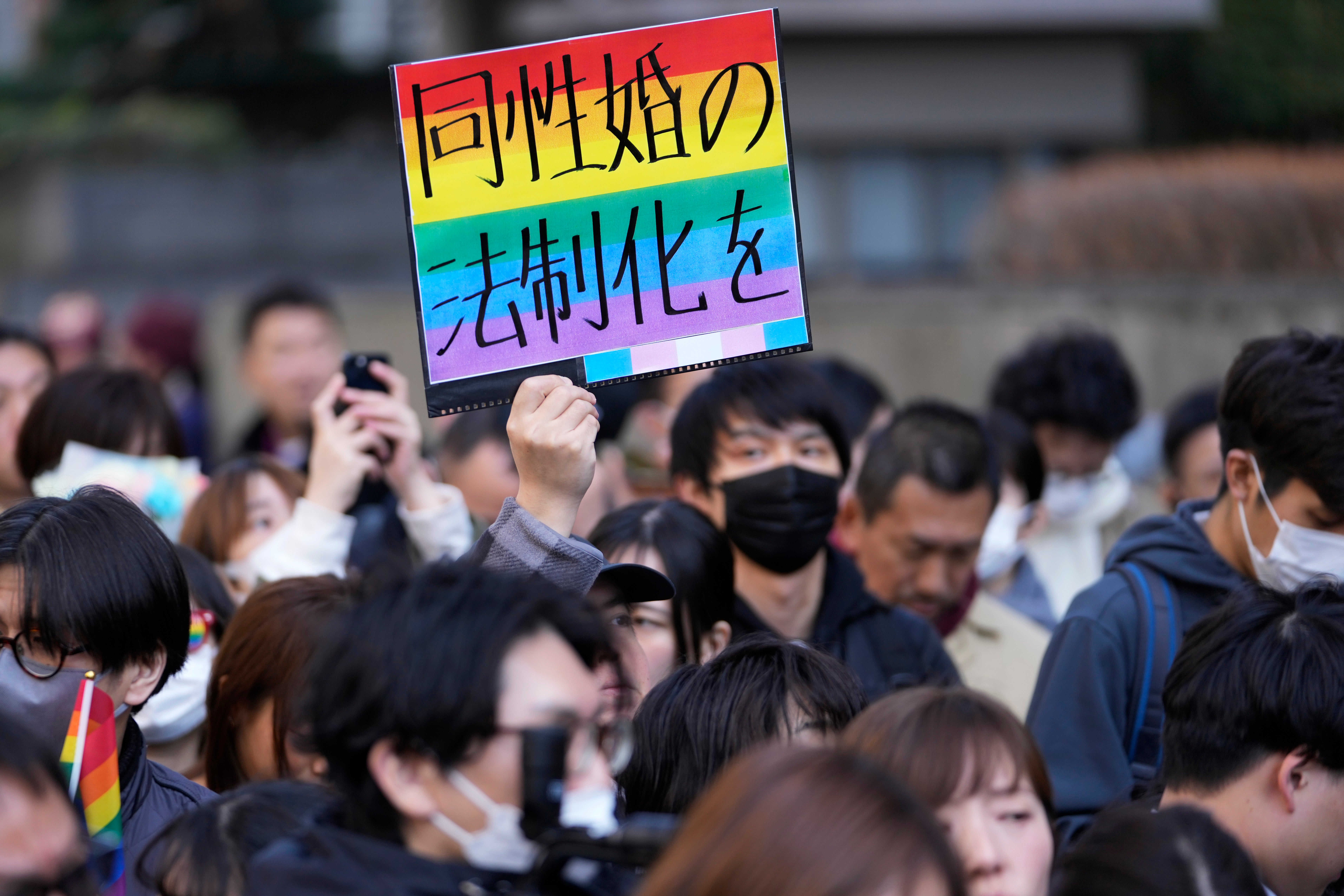Court in Japan allows transgender woman to officially change gender without compulsory surgery
A Japanese high court has approved a legal gender change for a transgender woman without requiring compulsory gender-affirming surgery

Your support helps us to tell the story
From reproductive rights to climate change to Big Tech, The Independent is on the ground when the story is developing. Whether it's investigating the financials of Elon Musk's pro-Trump PAC or producing our latest documentary, 'The A Word', which shines a light on the American women fighting for reproductive rights, we know how important it is to parse out the facts from the messaging.
At such a critical moment in US history, we need reporters on the ground. Your donation allows us to keep sending journalists to speak to both sides of the story.
The Independent is trusted by Americans across the entire political spectrum. And unlike many other quality news outlets, we choose not to lock Americans out of our reporting and analysis with paywalls. We believe quality journalism should be available to everyone, paid for by those who can afford it.
Your support makes all the difference.A Japanese high court has approved a legal gender change for a transgender woman without requiring compulsory gender-affirming surgery, a step that LGBGQ+ groups on Thursday called a mixed victory.
Under the law, transgender people who want to have their gender assigned at birth changed on official documents must be diagnosed as having gender dysmorphia and must undergo an operation to remove their sex organs.
The Hiroshima High Court ruled Wednesday that the current requirement is possibly unconstitutional, signalling a change in how gender issues are being addressed in Japan.
The claimant, only identified as a resident of western Japan in her late 40s, was assigned male at birth. Her request for a legal gender change in her documents was rejected by lower courts. She has argued through her lawyers that the surgery requirement forces a huge economic and physical burden and that it violates the constitution’s protection of equal rights.
The Supreme Court, in a landmark decision in October, ruled that the sterilization requirement is unconstitutional but sent the transgender woman's case back to the High Court, ordering it to reexamine if the claimant can avoid a gender-affirming surgery, something it failed to address in its earlier ruling.
The hormonal therapy sufficiently feminized the claimant’s body, including her genitalia, without the surgery, the court said.
Wednesday’s decision now allows the claimant to have her gender in official records match her identity.
One of her lawyers, Kazuyuki Minami, who informed his client of the ruling on the phone, said she cried with relief.
Members of the Japan Alliance for LGBT Legislation, in a statement Thursday, said that the Hiroshima ruling can be considered progress because "it can open the door for transgender females to be able to legally change their gender without undergoing surgery.” But it said questions remain because it fell short of including those who cannot take hormones.
The group said it will keep fighting discrimination against transgender people.
The decision comes at a time of heightened awareness of issues surrounding LGBTQ+ people in Japan. The ruling that allows the claimant's legal gender change without her surgery could be especially beneficial for transgender females, whose affirmation care tends to face greater controversy. But the high court ruling, unlike that of the Supreme Court, is not legally binding.